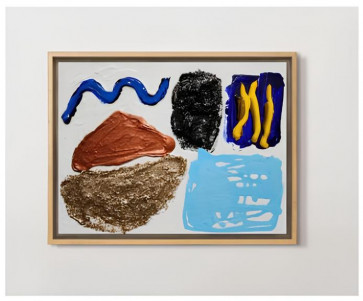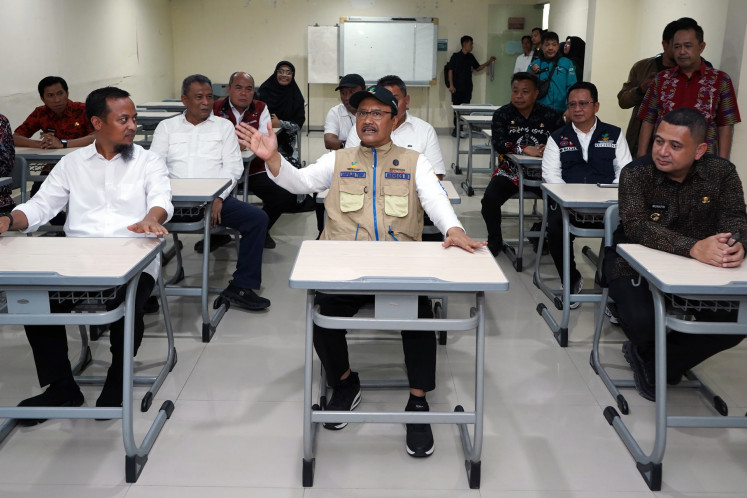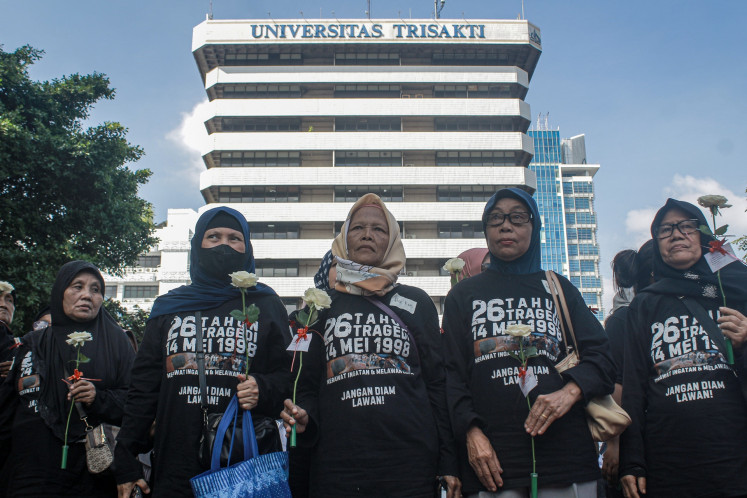13 West Java traditional arts listed as intangible cultural heritage
The arts are badawang, bajidoran, blenderan, benjang, cingcowong, domyak, kawin cai, panjang jimat kasepuhan Cirebon, reak dogdog, seren taun Cigugur, seren taun Banten Kidul, tari trebang randu kintir dance, and topeng banjet.
Change text size
Gift Premium Articles
to Anyone
 Sundanese gamelan. (Shutterstock.com/ paparazzi23)
Sundanese gamelan. (Shutterstock.com/ paparazzi23)
T
he government has named 13 traditional arts from West Java as intangible cultural heritage as a way to protect the arts from being claimed by other countries.
The decision was announced with an Appreciation Certificate of Indonesia Intangible Cultural Heritage from Home Minister Tjahjo Kumolo to the regional secretary of West Java province, Daud Achmad, during the National Cultural Week 2019 at Istora Senayan in Jakarta on Tuesday night.
The arts are badawang, bajidoran, blenderan, benjang, cingcowong, domyak, kawin cai, panjang jimat kasepuhan Cirebon, reak dogdog, seren taun Cigugur, seren taun Banten Kidul, tari trebang randu kintir dance, and topeng banjet.
Tjahjo appealed to the regional heads to immediately propose their cultural heritage to the Indonesian Law and Human Rights Ministry.
“Not only the culture but also the cuisine. I don’t want our culture claimed by other countries,” Tjahjo said.
Separately, Daud appreciated the new status, adding that every regional head in West Java should always try to preserve the arts in their area.
“We compete with other countries too. We can see that many cultural arts in Sumatra are being claimed by other countries,” Daud said.
In 2019, the Culture Directorate General of the Education and Cultural Ministry announced 267 arts from various parts of the country as intangible cultural heritage. From 2013 to 2019, the government has named 1,086 arts as intangible cultural heritage.
The naming of the intangible cultural heritage was through the recommendation of experts in accordance with the UNESCO 2003 Convention for the Safeguarding of Intangible Cultural Heritage ratified in 2007 through Presidential Regulation No. 78/2007 on the officiation of the Convention for the Safeguarding of Intangible Cultural Heritage.
The expert team comprises five domains on traditions and oral expression including language as the vehicle of intangible culture, art performance, social customs, rites and ceremonies, knowledge and habit toward nature and the universe, as well as traditional skills. (gis)









